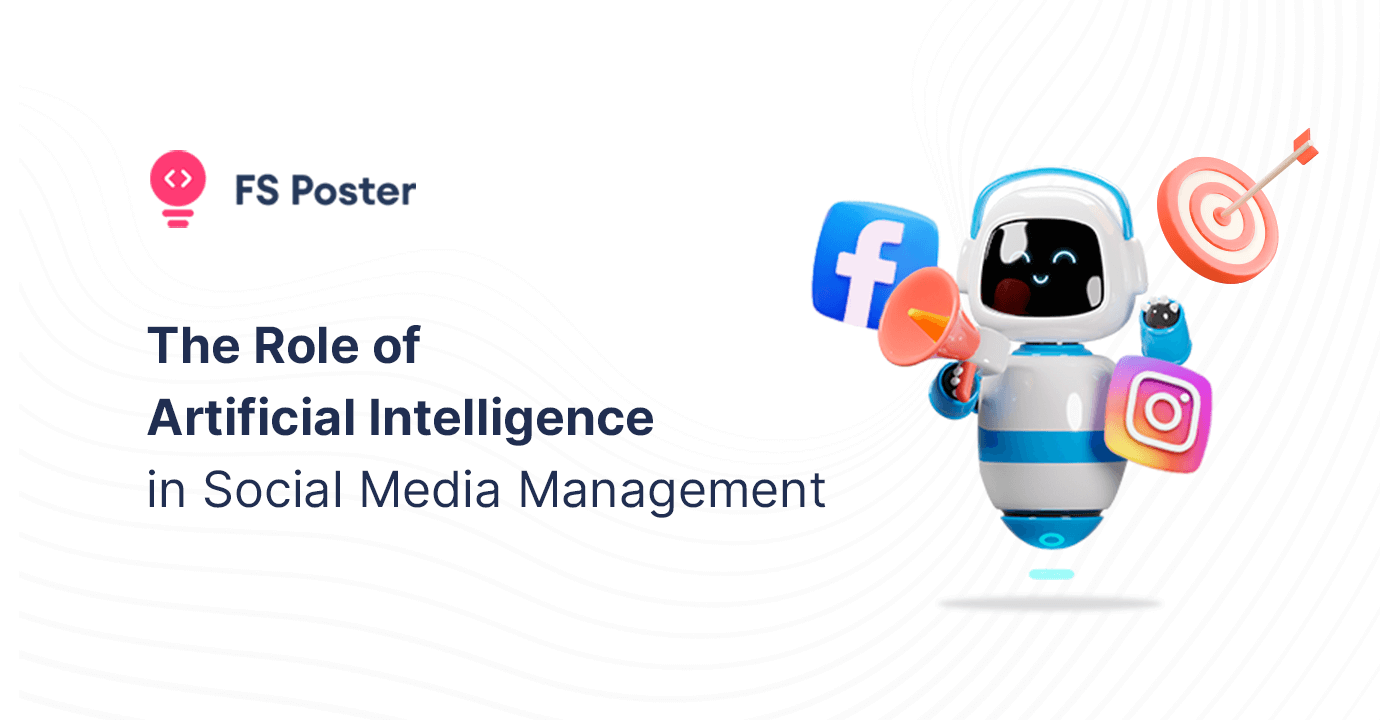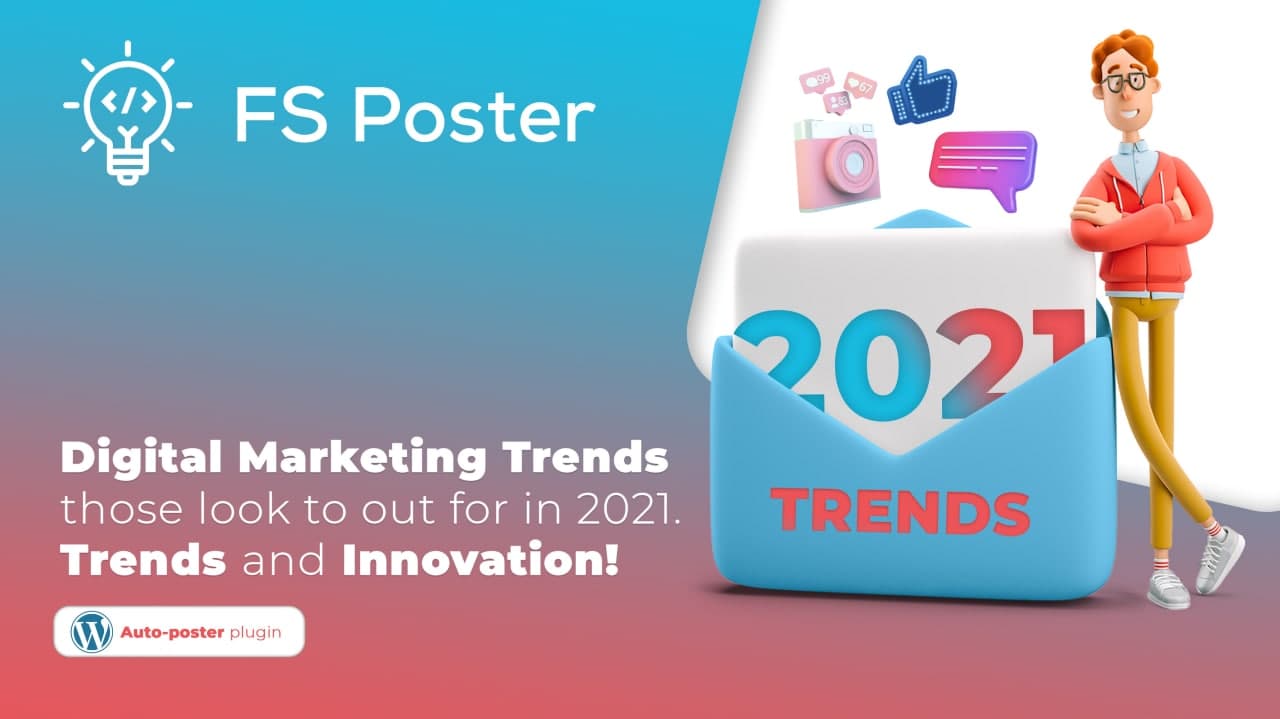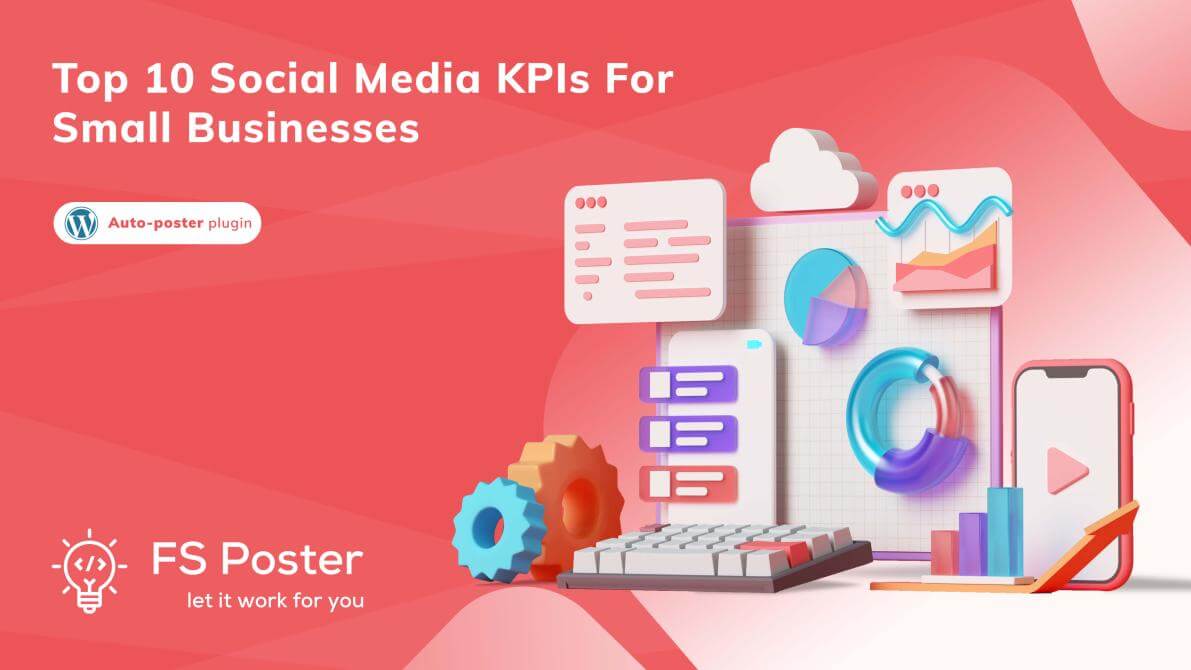
Lauren Bradshaw
Author
With more than 4.89 B total users worldwide, social media has become one of the most effective channels for connecting with your audience and getting conversions for your business. However, the ever-growing number of users and the increasing sophistication of different social media platforms challenges marketers to keep up with the times.
You have to keep up with the latest trends, manage consumer expectations, choose the right strategy, decide what content to create, and monitor how these factors affect audience behavior.
It's quite a lot of work even for experienced marketing teams. This is where artificial intelligence (AI) comes in to help you optimize your company's social media marketing efforts.
What is Artificial Intelligence?
.jpg)
AI is the process of developing intelligent computers capable of doing activities that normally require human intellect. AI offers a broad range of applications in numerous industries, including social media management and marketing, ranging from speech recognition to natural language processing.
In other words, it's the process of machines getting an imitation of human thought processes and actions.
All in all, AI is an umbrella term for various technologies, including:
- Pattern recognition
- Deep learning
- Natural language processing
- Image analysis
- Speech recognition
- Machine learning (ML)
AI is what allows services like Netflix and Spotify to recommend shows and songs that might interest you based on what you've watched or listened to in the past. Modern businesses actively integrate AI into app development to create similarly personalized user experiences that drive engagement and retention.
This technology can save you a lot of money and time and determine the results of your social marketing campaigns. And if you plan to build and scale a successful business, you can no longer afford to ignore AI.
How Artificial Intelligence is Used in Social Media
.jpg)
Social networks widely use AI technologies to develop their unique capabilities, both for the convenience of users and for the benefit of the company.
Monitoring and responding to social media activity, generating the content, and connecting with the audience are all part of social media management. AI-powered technologies help organizations handle their social media presence more effectively, saving time and expenses:
- Predictive analytics: The wide-ranging branch of computer science is used in all social networks without exception. For example, Instagram AI warns users when they're about to write a negative/abusive comment on another user's post.
Now special algorithms "catch" the insult at an early stage and ask the user to think about whether it's worth posting such a comment. "This intervention gives people a chance to think about it and cancel their comment," notes Adam Mosseri, Head of Instagram.
From early tests of this feature, he found that such a feature encourages some people to cancel their insulting remarks and share something less detrimental or provocative once they have a chance to think about it.
You can also adjust your Instagram settings and filter out comments you don't want to appear on your posts.
- Facebook simulator: FB uses AI to simulate the behavior of people who violate the rules of the social network. Web-Enabled Simulation (WES) is an identical copy of the platform that it's populated by AI bots that swear, sell weapons/drugs, and publish illegal content just like a real person would.
The platform's AI inventors claim that a Facebook-like simulation should train algorithms to recognise infractions and anticipate outcomes. AI is also used to prevent account hacking and identify users by their photos.
All of this increases the security and efficiency of interaction between FB users.
- Monitoring social media for mentions of the business, products, or services is what social listening entails. Artificial intelligence-powered solutions may assist organizations in tracking and analyzing social media conversations, allowing them to reply in real time.
- User attraction. Twitter's AI is used to show the most interesting posts to users, based on their previous activity and check their news feeds for "fake" news. Take the friend recommendation feature, for example.
Previously, algorithms offered to add people as friends based on your common followers (e.g., classmates, colleagues, etc.).
The study of user relationships has now developed into a distinct area of artificial intelligence, with a vast amount of data being examined and several profile criteria taken into account.
- Precise recommendations: AI analytics helps match users with recommendations for communities, events, music, and news based on identified interests. Most importantly, users can see accurately targeted ads.
Advertising has become an integral part of social media and a major source of revenue. It's important for businesses to show ads to the most relevant audience possible, which requires deeper analysis of user profiles, not just likes or view histories.
- Sentiment analysis is the method of evaluating social media posts to identify the audience's mood and emotions. This allows businesses to determine how their TA is reacting to their content and change their social media strategy correspondingly.
Artificial intelligence technologies are used in almost all social media platforms and solve a wide range of problems, from the creation of entertaining special projects for users to optimizing the cost of advertising for businesses.
Machine learning models are the basis of most recommendation systems, such as smart news feeds, advertising algorithms, or music recommendations.
In addition to social media platforms, artificial intelligence technologies are also making significant contributions to ecommerce order management. Machine learning models are employed to optimize inventory management, predict demand, and streamline logistics processes, ensuring efficient order fulfillment and customer satisfaction.
These intelligent systems enhance the overall ecommerce experience.
Computer Vision Technology as a Field of Artificial Intelligence
Users can correctly apply virtual face masks in Instagram Reels and control video recording in clips with gestures. Companies can assess visual information on social media and gain insights into consumer behaviour by using computer vision, which is the ability of machines to analyse and understand visual data.
For a better user experience, several IoT firms have long included voice recognition technology driven by AI in their products.
Natural Language Processing
Natural language processing (NLP) refers to machines' capacity to understand and interpret human discourse. Businesses will be able to examine social media interactions in real time using NLP-powered technologies, delivering data on consumer habits and interests.
Text-to-Speech Technology
Lastly, text-to-speech (TTS) solutions have already been incorporated into various messengers so that users can read the decoding of voice messages instead of listening to them. The solution to this problem uses a set of algorithms that recognize speech, translate it into text, and place punctuation marks.
How Artificial Intelligence is Used in Marketing
.jpg)
As a marketer, you are always looking for new and innovative ways to engage and interact with your customers. And in today's digital age, AI and ML are undoubtedly two technologies that are rapidly changing the industry.
So, how exactly are AI and ML being used in marketing? Here are a few examples:
- Personalization: One of the biggest benefits of AI and MO is the ability to create personalized marketing campaigns that are tailored to each customer's individual needs and preferences.
By analyzing data such as purchase history, browsing behavior, and demographic characteristics, companies can create targeted marketing messages and recommendations that are more likely to resonate with their audience.
- Customer segmentation: AI and MO can also help companies segment their customers into specific groups based on common characteristics, allowing them to create more relevant marketing campaigns and offers.
For example, a company can use AI to identify a group of customers interested in outdoor activities and create a targeted marketing campaign promoting a new line of camping gear. You can try IBM's Watson Assistant for customer segmentation.
Plus, due to IBM's recent integration with Segment, users can now receive deeper analytics and send data for each event that happens on the assistant to specific destinations (e.g., analytics platforms, CRMs, etc.).
By the way, according to HubSpot, “IBM is the leading company in active ML and AI patents worldwide, with over 5,500 patent families as of November 2020, followed by Microsoft and Samsung, each within 500 patent families from IBM.”
- Predictive analytics: AI technologies can be used to analyze data and make predictions about future customer behavior. This can help companies identify trends and opportunities for marketing campaigns and optimize them for maximum effectiveness.
- Chatbots and virtual assistants: AI-powered chatbots are an incredibly popular way to interact with customers in real time, providing personalized support and recommendations based on past interactions with the customer.
According to DemandSage, the chatbot sector generates around $137.6 million in revenue as of 2023, with a projected increase to $454.8 million by 2027. Furthermore, approximately 3 million chatbots are already in use on Facebook Messenger alone.
- AI big data analysis can help companies identify trends and opportunities for marketing campaigns and optimize them for maximum effectiveness. To create a quality and effective customer engagement strategy, companies must work to collect, analyze, and filter reliable information.
With AI, it becomes easier. For example, the right AI tool can help determine which pages/products are viewed/bought the most and the like. AI can track a customer's entire path to purchase and offer the right item to increase sales.
For example, with Google Analytics, Semrush, Clicky, or Matomo, marketers can track customer behavior on the website.
- Content creation: AI and ML tools can be used to create and analyze customized content for marketing campaigns, such as emails or social media posts. By analyzing data such as customer preferences and past interactions, AI can generate customized content that is more likely to attract and convert regular site visitors into loyal customers.
- Email marketing. Because this type of marketing is critical to online businesses, AI can improve your newsletters and help create high-quality emails to increase your revenue while maintaining profitability.
At this point, AI-based tools such as an AI writer can create a subject line, personalized emails, and customer lists, as well as automate your newsletters and improve email marketing campaigns.
This way, you can discover new areas for improvement and optimization. After all, AI will assess your campaign engagement, click-through rates, and conversion rates. Plus, AI chatbots can be used in messaging apps, complement email campaigns, and provide the most personalized experience possible.
- Influencer marketing. Using NLP, AI can anticipate how well an influencer will connect with your brand's goals in a particular campaign and, by comparing data, assist companies in selecting the most suitable social media influencers.
AI can also help review and calculate ROI, detect fake influencers, and find the most successful material.
- Social media ad management. To achieve the best results, AI-powered technologies may help evaluate hundreds or thousands of ad targeting and budget variants, locate and segment customers, test and create unique high-quality content, as well as optimize both speed and effectiveness in real time.
Marketers may also tailor advertisements for views and increased sales by leveraging AI's capacity to forecast which language will provide the best results or which content to publish by focusing on keywords used by customers when looking for items similar to yours.
Cloud scraper technology can be used to collect valuable data and insights from various online sources, including social media platforms, which can further enhance the effectiveness of AI-powered social media ad management.
- Monitoring brand campaigns using logo detection. Using computer vision technology, AI is taking visual search to the next level.
A lot of businesses use logo detection to evaluate photos of their products that appear on social media pages. AI-powered logo identification solutions also allow firms to track how frequently their brand logos pop up on social media.
As image-based material becomes more popular, it's critical for companies to assess their visual content and check it for logos.
The Future of AI in Social Media Management and Marketing
AI-powered solutions will continue to revolutionize the way businesses manage and promote on social media. From chatbots to content production, audience targeting to data analysis, AI helps companies stay ahead of the competition and build their social media presence.
In the future, firms will be able to use even more powerful AI tools to create more tailored and engaging experiences for their customers.
All in all, AI will revolutionize online promotion. With Facebook and many other platforms now providing handy AI tools that help marketers manage their ads with ease, their effort won't go to waste:
- On the one hand, as a marketer, you can have access to all kinds of information that makes it easier to optimize your ads;
- On the other, FB uses AI to deliver targeted ads directly to the target audience (TA). In addition, the landing page plays a vital role beyond advertising.
Creating the best landing page can make a huge difference, and AI can help you with its design and personalization.
Bottom Line
As you can see, using AI and ML in marketing helps companies better understand their customers and create more targeted and effective marketing campaigns. And as these technologies continue to evolve, we can expect to see even more innovative applications in the future.
For now, many marketers can do without artificial intelligence, but it's only a matter of time, experts say. As technology is transforming social media management and marketing, organizations receive tremendous tools for connecting with their audiences and driving sales.










